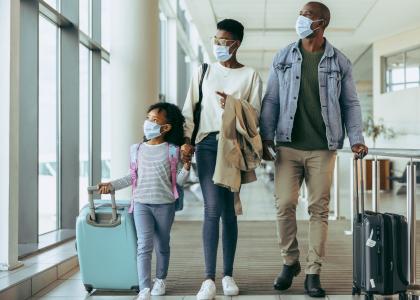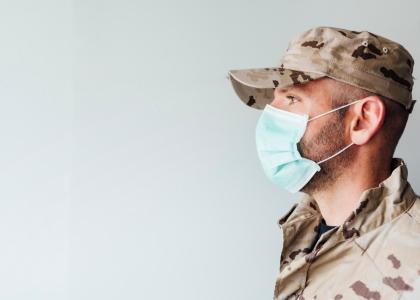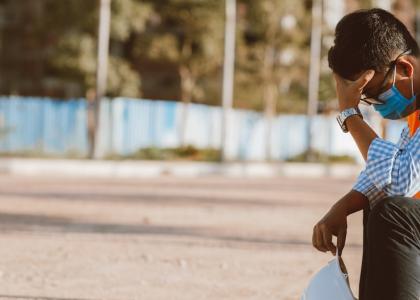White
Transcending COVID-19 Barriers to Pain Care in Rural America: Pragmatic Comparative Effectiveness Trial of Evidence-Based, On-Demand, Digital Behavioral Treatments For Chronic Pain

For people from the rural America with chronic diseases, the pandemic can not only worsen pain, but also it can trigger anxiety, depression, trouble sleeping, and substance use. One way doctors and health systems are reaching out is by video visits, where patients and their providers communicate online via the Internet.
Tracing the Health Consequences of Family Support during the COVID-19 Pandemic

This project fills this gap in the research creating a multidimensional contextual database linked to the Health and Retirement Study (HRS) and the Panel Study of Income Dynamics (PSID) to examine the effects of the pandemic across generations of American families. The HRS and PSID have collected data on the health and well-being of individuals and their family members for decades.
Mitigating Effects of Telehealth Uptake on Disparities in Maternal Care Access, Quality, Outcomes, and Expenditures During the COVID-19 Pandemic

Telehealth represents a promising opportunity to reducing disparities in maternal health access, quality, and outcomes, given its substantial range of opportunities.
The Longitudinal Impact of the COVID-19 Pandemic and Related Multi-Level Mitigation and Contextual Factors on Health and Socioeconomic Outcomes of Individuals and Families From a Vulnerable Population

A “shovel ready” project leveraging the existing longitudinal data collected in the Fragile Families and Childhood Wellbeing Study (FFCWS), the longest running population-based US birth cohort, collected before and throughout the pandemic linked with multilevel COVID-19 related health, social and economic measures, and prospective COVID-19 impact assessments to examine these issues.
Reducing Stigma Among Healthcare Providers to Improve Mental Health Services (RESHAPE)

Our preliminary work suggests that reducing primary care workers' stigma against persons with mental illness may improve accurate detection of mental illness. We developed a version of mhGAP training that includes a stigma reduction component: “Reducing Stigma among Healthcare Providers” (RESHAPE).
Advancing Research on Mechanisms of Resilience (ARMOR): Prospective Longitudinal Study of Adaptation in New Military Recruits

The overarching goal of this study is to improve our understanding of resilience processes related to the economic, social, and personal impacts of the COVID-19 pandemic and their downstream mental health outcomes in National Guard soldiers.
Testing of a Patient-Centered e-Health Implementation Model in Addiction Treatment

This project will enhance the ACHESS smartphone app with new COVID-19 related features and then examine how patients use ACHESS features, how organizations refer patients to the ACHESS, how they interact with patients in ACHESS, and the overall impact of the ACHESS features.
Defining Trajectories of Linguistic, Cognitive-Communicative and Quality of Life Outcomes in Aphasia

This project aims to examine the effect of COVID-19 on telerehabilitation access and the cognitive-communicative and psychosocial health outcomes for patients with aphasia.
A National Neighborhood Data Resource to Understand Inequities in the Health and Socioeconomic Impacts of COVID-19 in the United States

This project will use the National Neighborhood Data Archive (NaNDA) to identify which communities are most vulnerable to the immediate and longer-term consequences of the pandemic for a host of behavioral, psychological, social, and economic outcomes.
Policies on Racial/Ethnic and Socioeconomic Disparities in Mental Health and Healthcare Utilization

The goal of this study is to leverage, expand upon, and link existing national data sets to test the hypothesis that county-level public health and social policies have affected disparities in mental health and healthcare utilization.